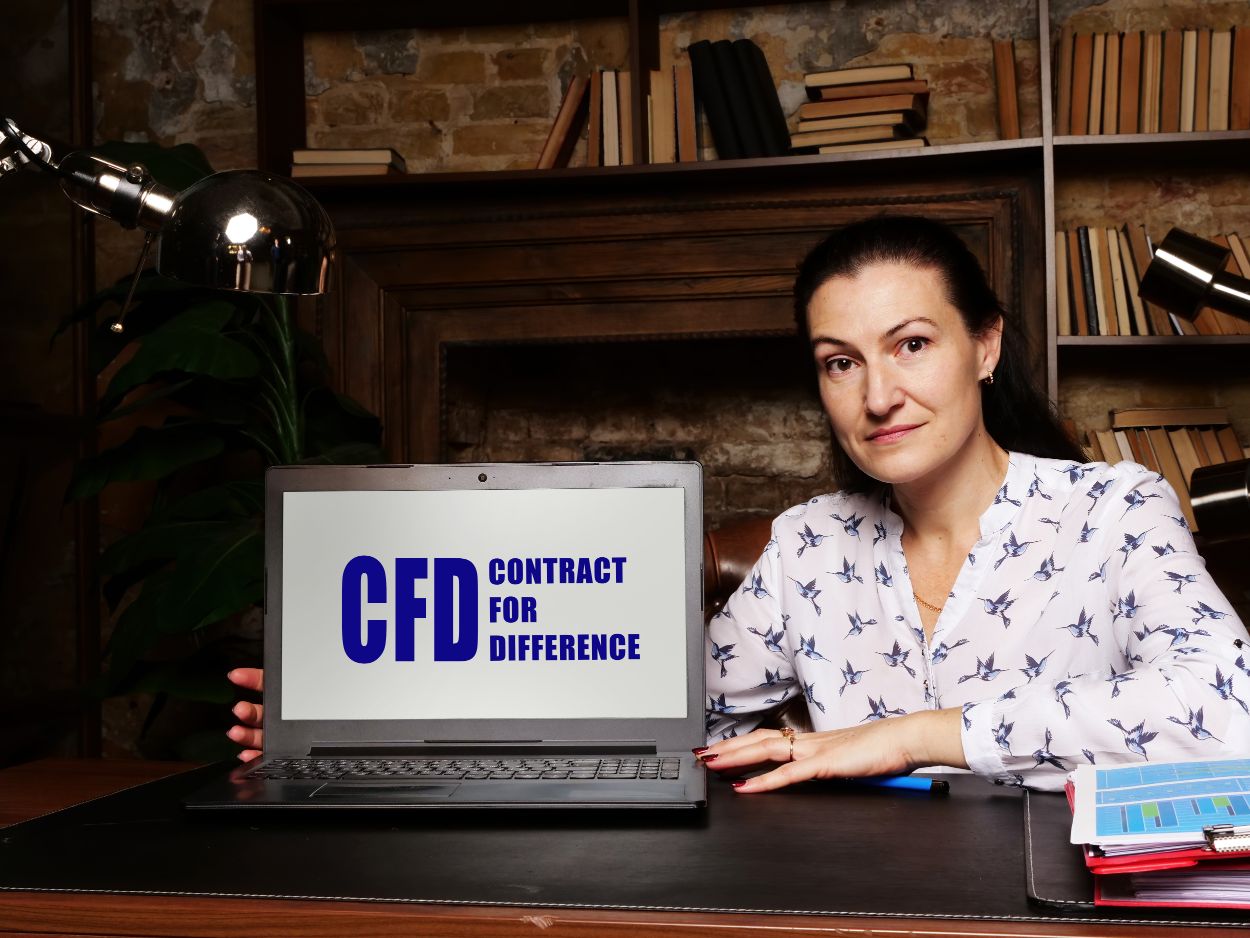Example of trades with CFDs

Trading in commodity CFDs is comparatively popular. we'll take an example with gold.
Say you would like to shop for 100 troy ounces of gold at $ 1,800 and choose a CFD broker that gives 1: 100 leverage thereon asset. Here, you'd need $ 1,800 to open the position:
(100 x $ 1,800) / 100 = $ 1,800
To calculate the precise costs of the transaction, we'd like to think about that the broker is taking the spread or a commission.
The spread
In this example, suppose your chosen broker charges you $ 0.5, which brings the acquisition price to $ 1,800.50:
(100 x $ 1,800.5) / 100 = $ 1,800.5
If the worth of gold was $ 1,850, your order would be executed at the sell price of $ 1,849.50 assuming the spread remains an equivalent at $ 0.5. Your profit would therefore be $ 49 for each ounce of gold:
($ 1,849.50 - $ 1,800.50) = $ 49
But remember, you purchased 100 troy ounces of gold, which resulted during a total profit of $ 4,900 on the position:
(100 x $ 49) = $ 4,900
Assuming you had $ 10,000 of capital in your trading account, that might mean you made a 49% profit on the trade. Compared to a trader who bought physical gold at an equivalent price, the profits obtained from the day trading in Canada are much higher. If you had bought the physical gold, the profits would only be $ 50 minus the transaction costs.
($ 1,850 - $ 1,800) = $ 50
However, you can't always make a profit and sometimes you'll make a loss. Now imagine that the worth of an oz has gone from $ 1,800 to $ 1,750. By maintaining a continuing spread at $ 0.5, you'd sell the gold you purchased for $ 1,749.50, leading to a loss of $ 51 per ounce. during this case, the loss would be $ 5,100:
($ 1,800.50 - $ 1,749.50) x 100 = $ 5,100
If you think about that you simply have a capital of 10,000 dollars, it means you lost 51% of your capital on the transaction. Some brokers have a stop-out level which involves closing open positions if a particular percentage of your capital is lost. For more flexibility, some brokers allow you to set your stop-out level.
Brokers charging the spread and a commission
Some CFD brokers apply tighter variable spreads, but accompany a commission which depends on the dimensions of the position. to ascertain the effect of such pricing, consider a broker charging a selection of $ 0.1 on gold and a commission of $ 3.50 per lot.
Since a typical lot of gold is 100 troy ounces, the entire commission on the transaction are going to be $ 7 (entry + exit). Including the spread of $ 0.1, the entire profit on a winning trade would be $ 4,973:
Purchase price = $ 1,800.00 + 0.1 = 1,800.10
Sale price = $ 1,850 - 0.1 = 1,849.90
Profit = (($ 1,849.90 - $ 1,800.10) x 100) - $ 7 = 4,973
As you'll see, the profit made on the transaction is higher even with the commission. The losses also will be slightly lower:
Purchase price = $ 1,800.00 + 0.1 = 1,800.10
Sale price = $ 1,750 - 0.1 = 1,749.90
Loss = (($ 1,800.10 - $ 1,749.90) x 100) - $ 7 = 5,013
What financial products might be traded within the sort of CFDs?
CFDs can emanate from any sort of financial instrument.
There is no limit to the products which will be traded as CFDs as long as there's a marketplace for it. In fact, CFDs are so simple that contracts are often created from any listed asset.
That being said, the foremost traded CFDs are in stocks, stock indices, and metals. US stocks especially , especially tech stocks like Amazon, Facebook and Google, became very attractive thanks to the expansion of the world . Metals (gold, silver) and petroleum also are very fashionable .
Since the bubble within the cryptocurrency market, virtual currency currency pairs also are offered by most quotex brokers. This features a huge advantage for speculators who can cash in of their fluctuations without having to line up cryptocurrency wallets.
All of those securities are traded on global stock markets, so it's easy for a CFD broker to partner with liquidity providers to supply quotes. additionally , these markets are very liquid, which guarantees traders access to assets at attractive prices. the simplest brokers partner with liquidity providers round the world to be ready to offer the simplest prices.
